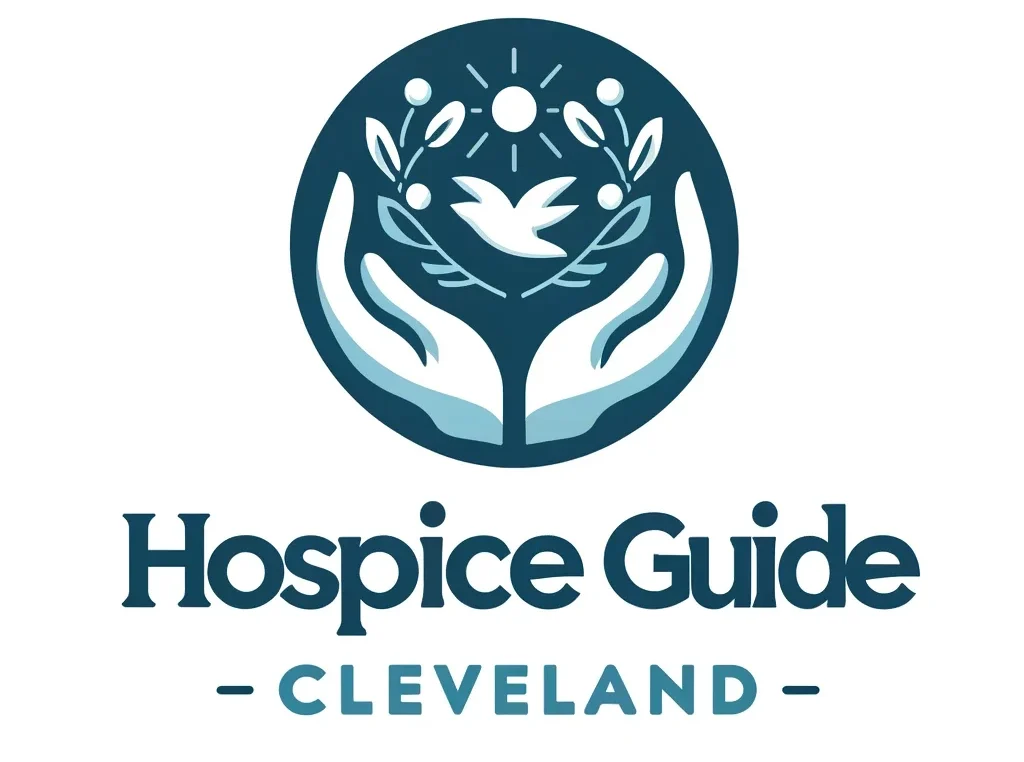Advance Directives are legal documents that communicate a person’s health care preferences at the end of life. They are essential in guiding health care professionals and loved ones to make decisions that align with the individual’s values and beliefs.
These directives typically include a living will, which outlines the types of medical treatments a person wishes or does not wish to receive, and a power of attorney for health care, which designates an individual to make health care decisions on their behalf if they are unable to do so.

Advance care planning involves reflecting on one’s values and discussing wishes with family members and health care providers before these directives are needed. The process ensures that a person’s medical care preferences are understood and respected, particularly within the scope of hospice care.
It is a crucial step in receiving personalized care that honors an individual’s choices, giving them peace of mind that their wishes will be followed during an emotionally challenging time.
Key Takeaways
- Advance directives include a living will and power of attorney, guiding end-of-life care.
- Reflecting on personal values facilitates the creation of directives that reflect an individual’s health care preferences.
- Advance care planning ensures personal choices are respected and implemented in hospice care.
Preparing and Documenting Your Advance Directives

The preparation and documentation of advance directives are critical steps in ensuring that an individual’s healthcare preferences are followed in situations where they may not be able to communicate their decisions.
This involves understanding the various components, appointing a trusted agent, and satisfying legal requirements.
Understanding Advance Directives
Advance directives are legal documents under which individuals can express their wishes concerning medical treatments they want to receive or avoid, should they become incapable of making decisions.
It serves as an umbrella term encompassing several types: a living will, medical power of attorney, DNR (Do Not Resuscitate) orders, and POLST (Physician Orders for Life-Sustaining Treatment) forms.
For English and Spanish speakers, state-approved resources like The Conversation Project and Five Wishes can assist with templates and guides tailored to specific cultural and language needs.
Choosing an Agent and Communicating Wishes
To ensure wishes are honored, one must choose a healthcare agent — also known as a healthcare proxy, attorney-in-fact, or surrogate.
This responsible person will be the voice for decisions following the crafted instructions, often detailed in a directive to physicians.
It’s essential to engage in clear communication with the selected agent and family members to discuss healthcare preferences in various medical scenarios.
Documentation should incorporate preferences and be readily accessible to the chosen agent.
Legal Requirements and Execution
The legal process of executing advance directives varies by state but generally involves the preparation of the legal document, ensuring it includes clear instructions and preferences for care.
Once prepared, notarization and witnesses might be required to give directives legal standing.
While it’s not always necessary to have a lawyer, seeking legal advice can provide clarity on state-specific laws.
Access to these documents is crucial; hence, they must be stored in an easily retrievable location and shared with the relevant healthcare providers.
Resources for Preparing Advance Directives:
- Understanding Advance Directives – NHPCO
- How to Create Your Advance Directive – CaringInfo
- Advance Directives Booklet – Hospice of the Western Reserve
- Decisions & Advance Directives – Stillwater Hospice
Implementing Advance Directives in Hospice Care

Implementing advance directives in hospice care is pivotal for honoring a patient’s healthcare preferences and ensuring that end-of-life care aligns with their desires and values.
This implementation requires communication between physicians, patients, and families to make sure that medical decisions are both informed and respected.
Hospice Care and Medical Treatment Considerations
Hospice providers work with patients to prepare for end-of-life care, which often involves clarifying the types and extent of medical treatments to be administered.
This process is vital to ensure that treatments like cardiopulmonary resuscitation (CPR) align with the patient’s wishes.
A Do Not Resuscitate (DNR) order is a common directive in hospice settings for patients who wish to forgo aggressive life-saving interventions.
Hospice care professionals emphasize palliative care rather than curative treatments, focusing on relief from symptoms and stress related to serious illness.
Part of this involves educating patients and families about what to expect and preparing for emergency situations.
Hospice care helps patients with chronic or life-limiting conditions receive compassionate care that mitigates suffering and honors their healthcare preferences.
Aligning Directives with Patient and Family Goals
Both the patient and their family should be involved when implementing advance directives to ensure decisions reflect the collective goals and beliefs.
A health care proxy is often designated to make medical decisions if the patient becomes unable to do so.
Effective hospice care ensures that:
- Treatment plans are consistent with the individual’s values and preferences
- Emergency personnel such as EMS are informed about the advance directives, such as a DNR order
- Documentation is kept up-to-date and accessible to healthcare providers
Tools like Prepare for Your Care and initiatives such as The Conversation Project help facilitate discussions about end-of-life care preferences and encourage documentation of these wishes.
Engagement with these tools can aid in normalizing conversations around advance directives and ensure that everyone involved, including doctors and family members, understands the patient’s wishes clearly.
The National Hospice and Palliative Care Organization offers resources to help individuals discuss and document their treatment preferences before a crisis occurs.
It is crucial that the individual’s decisions are documented properly and communicated effectively to all parties involved, from family members to the physicians overseeing medical care.
Frequently Asked Questions
Advance directives are essential for ensuring patients’ healthcare preferences are respected, particularly in hospice care. These directives guide decisions when patients are unable to speak for themselves.
What is the difference between a living will and other forms of advance directives?
A living will is a document that outlines a person’s wishes regarding medical treatment if they become incapacitated. Other forms of advance directives include the durable power of attorney for health care, which designates an individual to make healthcare decisions on the person’s behalf.
How can a patient obtain an advance directive form in Texas?
In Texas, patients can acquire an advance directive form by downloading it from the Texas Department of Aging and Disability Services website or by requesting one from healthcare providers.
What role do advance directives play in making decisions for hospice care?
Advance directives inform hospice care providers about a patient’s end-of-life care preferences, such as pain management and life-sustaining treatment options, ensuring that the care aligns with the patient’s wishes.
Can hospice care providers help facilitate the completion of advance directives?
Yes, hospice care providers are often equipped to assist patients and their families with the completion of advance directives, ensuring that the document reflects their specific healthcare choices.
Are there any specific requirements for advance directives to be legally valid in Texas?
For advance directives to be legally valid in Texas, they must be signed by the patient (or an authorized representative), in the presence of two qualified witnesses or a notary public.
How does a Do Not Resuscitate (DNR) order relate to and differ from other advance directives?
A DNR order is a specific type of advance directive that instructs medical personnel not to perform CPR.
Unlike a living will or a durable power of attorney for health care, a DNR order applies only in the event that the patient’s heart stops beating or they stop breathing.

